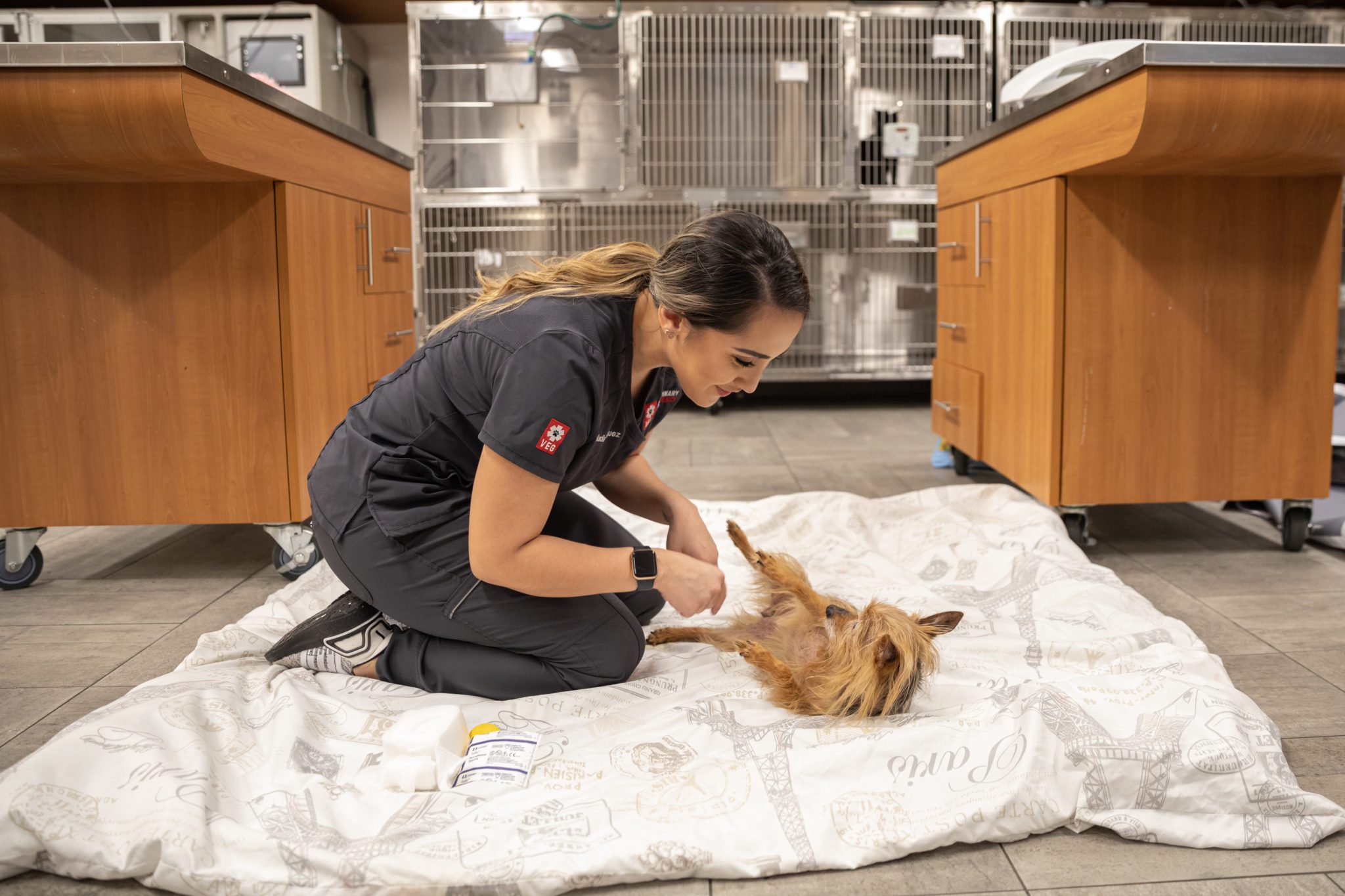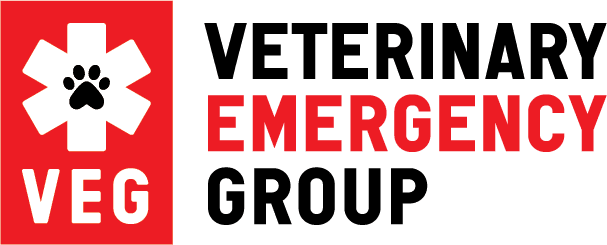
Why Does My Dog Have a Swollen Stomach?
Dr. Benjamin Harries
Call & Speak with a doctor Open 24/7, Even Holidays!
Walk in today for:
Emergencies
Point-of-Care Ultrasound
Urgent Care
X-Rays
Diagnostics + Testing
End-of-Life Care
Surgery
Treatment + Hospitalization
We can all relate to having a bloated tummy after a meal. But, for your pup it could be more than the occasional discomfort that we feel. A swollen stomach is not something to be taken lightly when it comes to your dog’s health. While it’s possible that it’s simply a case of overeating, many times, it’s an indication of a serious health issue that needs emergency medical attention.
TIME FOR A DIET…OR THE VET?
Bloating generally occurs when food or gas stretches the dog’s stomach. It might look like your dog is tipping the scales, but don’t jump to conclusions. Look for the following symptoms because what seems like weight gain could be bloat:
- Swollen abdomen
- Feels hard
- Has an unusual shape
If you notice these signs, call your veterinarian immediately. If it’s after hours, you should take your pet to the emergency vet. Swollen stomachs in dogs can be fatal if left untreated.
LET’S EXPAND ON SWOLLEN STOMACH CAUSES
There are a number of reasons a dog may develop a swollen abdomen, some less severe than the others.
Gastric Dilation Volvulus (GDV)
One of the most common and concerning reasons for a swollen stomach in dogs is gastric dilation volvulus, or GDV for short.
Trapped gas blocks off the stomach’s blood supply, which can be terribly painful and even life-threatening, if not treated. This can happen if your dog has swallowed air or has exercised intensely after eating.
Dogs are at high risk for GDV if they:
- Are only fed once a day
- Use elevated bowls
- Consume dry food
- Eat too quickly
- Have family history of bloat
- Are between 7-12 years of age
Deep-chested breeds like St. Bernards and Great Danes are also more likely to experience GDV. In fact, most dogs that weigh over 99 pounds have a 20% higher risk of the disease.
Along with the swollen stomach, look out for these other signs:
- Whining
- Difficulty defecating
- Sitting or lying in an abnormal position
- Having a weak pulse
Treatment for GDV
GDV cannot be treated at home, so it’s important to take your dog to a vet ASAP.
Treatment generally includes:
- Removing excess gas from the stomach
- Stabilizing the heart rate
- Managing shock
The vet can further assess once your dog is more stable.
Here are some helpful tips to keep in mind:
- Feed your dog at least twice daily
- Add some canned food into the mix
- Let your dog rest and digest after eating
If your dog is a predisposed breed, you may want to talk to your vet about a surgical procedure called a gastropexy. This can be done at a younger age as a preventative measure for your pup.
Peritonitis
This occurs when the dog’s stomach or intestines have ruptured. Potential causes for peritonitis include:
- Ulcers
- Tumors
- Bone splinters
- Urinary bladder or gallbladder ruptures
Treatment for peritonitis
The bloat can be quite painful. It’s recommended to take your dog to your family vet or an emergency pet hospital like VEG for immediate treatment. The vet will repair the puncture, remove infected fluids, and flush out the abdomen.
Cushing’s Syndrome
Another common cause of stomach swelling in dogs is hyperadrenocorticism, or Cushing’s syndrome. This is usually caused by the pituitary gland overproducing a hormone, and sometimes due to a tumor in an adrenal gland.
Some signs of Cushing’s include:
- A pot-bellied look
- Increased hunger
- Increased thirst
- Increased urination
Some dogs may also experience hair loss or increased panting.
Treatment for Cushing’s
Cushing’s could be treated with medication or if caused by a tumor, via surgery.
TAKE YOUR PET TO THE VET
While it may just be a case of overeating, it’s best to be proactive and visit your veterinarian right away! Keep an eye out for additional symptoms discussed here and share what you find with them.
The emergency vets at VEG are available 7 days a week to help care for your dog’s swollen stomach. At VEG, you never have to wait to be seen and you get to stay with your pet the whole time. No matter which of our VEG locations you choose—all hospitals are open 24/7, even on holidays—we’ll triage your pet right away – no waiting – and discuss with you the best course of treatment. Sometimes quick action is all it takes to keep your pup healthy and happy!

